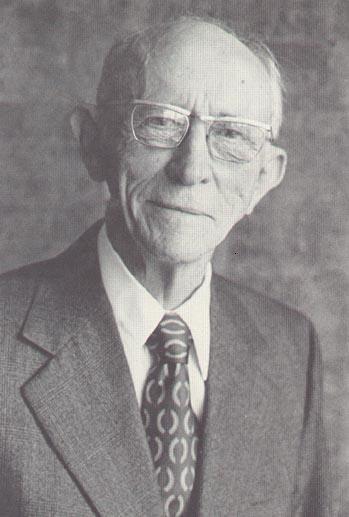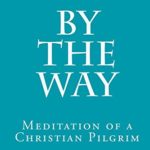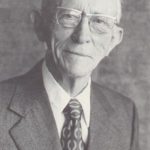Description
Rest Awhile
by
VANCE HAVNER
Author of “Consider Him” “Road to Revival” “The Secret of Christian Joy” and “By the Still Waters” and more
1941
Contents
22 BELIEVE—DON’T STUDY ABOUT IT!57
24 OVERDOING AND UNDERDOING.. 61
FOREWORD
EVER since I wrote By the Still Waters, while a country pastor, I have longed to write more in the same vein. Friends who say they were blessed by those rustic sketches have encouraged me to write a companion volume, but a city pastorate of five years and many preaching journeys over the land have not provided a suitable setting for rural reflections. One cannot write of these things in a hotel room.
It has become possible through circumstances, evidently the Lord’s leading, to spend a few autumn weeks in the old home in the hills. No sooner had this opportunity opened before me than I felt impressed to return to my first love and resume the trail of reflections I left in the Carolina lowlands. Then it was the low country, and now it is the hills, but both are Carolina and both are “countrified” and I trust the theme in both cases is common to hearts everywhere.
A few of these sketches were published with some changes in the Charlotte (N. C.) Observer, and grateful acknowledgement is hereby made for permission to reprint them. But all of them areFOREWORD
A skin, and in these simple matters that abide time makes little difference. They are sent forth to the glory of our Lord Who spoke the colorful language of the outdoors and Who bade His disciples of old, “Come ye yourselves apart and rest awhile.”
V. H.
Greensboro, N. C.
1 HOME AGAIN
I’M home again—and in October!
No combination of earthly joys could be finer. No place is sweeter, after months in the whirl of this insane world, than the house on the hill and the familiar paths in the woods, the simple sights and sounds back home. And though the poet asks, “What is so rare as a day in June?” we still hold out for October.
It may be that in autumn “the melancholy days have come, the saddest of the year,” but there is balm and healing in the very tang of the air and one gathers fresh courage for whatever these days of world distress may bring as he watches the passing year gaily dress itself in the Joseph’s coat of autumn to meet the white old age of winter. Would that we mortals might learn to fare forth as colorfully to meet whatever bleakness may lie ahead, knowing that beyond every winter lies always spring! And why should tide and season make any difference anyway, for “when I am happy in Him December’s as pleasant as May”?
So here I am in the hills watching Autumn weavefrom the loom of Summer her robe of many colors. There is something subdued, serene, sublime about it all, something as good for our souls as the vitality of spring and the contentment of summer. “The frost is on the punkin and the fodder’s in the shock.” The woods are full of busy squirrels keyed up by the winey autumn air. It is ’possum-hunting time and com-shucking season, and there’s brand new molasses for breakfast in the morning. Falling acorns tap the roof at night, and falling leaves somehow always carry a tinge of sadness and remind us of Byron’s lament about his days being in the yellow leaf. But, thank God, when we know the Lord, the worm, the canker and the grief are not ours!
The only parachute troops out here are the dandelion aeronauts floating in the breeze, but they are out for life and not for death. The muscadines and scuppernongs are ripe and there is an elixir in their wild juice that all the drug stores cannot match. The persimmons are ready, too, and he who has not tasted real persimmon pudding fresh on the farm is simply one of the underprivileged, “in castles and palaces though he may roam.”
Somehow, a lot of things don’t matter when one comes back home. Back from this modern mad masquerade, where everybody lives in a strain trying to make everybody else think he is what heisn’t, it is a relief to drop into plain, simple living where the journey of life is not spoiled by the baggage. I believe it was Josh Billings who said, u I’d rather know a few things for certain than be sure of a lot of things that ain’t so.” Somehow, the “few things for certain” seem more certain out here in the hills.
It’s a perfect morning. Not a cloud in the sky. The haze of autumn rests lightly everywhere. There is a tonic in the air. I must stroll down the pasture lane and by the creek and through the woods and over the hills, away from cars and radios and all the noisy trappings of this progress that doesn’t progress! It is good to get away from it all now and then, for we cannot run well in the midst of it all unless now and then we run away from it all.
It is good to be home again—and in October!
2 WHITTLING
I’M out on the front porch at home, looking across this gorgeous autumn landscape to the distant skyline, where at night the lights of five little towns run along like footlights of a stage. On the west the Blue Ridge Mountains are almost lost in this Indian summer haze. Last week I bought for myself this old home by the side of the road, and I dream big dreams of a quiet retreat on top of this hill, far from the madding crowd’s ignoble strife.
I’ve been whittling while I loaf, making tiny baskets from the plentiful acorns. No value, of course, just a pastime; and yet more valuable than many things I’ve done. I do not smoke. I know that Spurgeon did, but I have never been able to see how I could make a cuspidor of my mouth and a chimney of my nose to the glory of God. There are better ways of doing nothing, clean and wholesome. One of them is whittling.
Whittling is a lost art in this efficient age. Everybody is too busy going nowhere in a hurry. But I doubt not that in the good old days many an important problem was solved with a knife and a stick of wood. Abe Lincoln must have pared down many a knotty issue in this homely fashion. But, of course, he didn’t have to hurry around to radio broadcasts, et cetera ad infinitum.
Said Newton D. Baker: “The effect of modem inventions has been to immeasurably increase the difficulty of deliberation and contemplation about large and important issues. I doubt whether there could have been a Constitution of the United States of America if the deliberations of the Constitutional Convention had been currently reported by radio, telegraph and timely newspapers over the whole extent of the thirteen colonies.”
Quite so! I am convinced that those old worthies must have whittled out more than one decision. When I was preaching in Park Street Church in Boston, I meandered one day in that old, old graveyard where lie the bodies of Paul Revere and other notables of that heroic age. It required little imagination to picture those celebrities carving out patterns from wood while they pondered weightier concerns!
One would think that in a day of such scientific skill and wonders of invention there would be a proportionate increase in human character. But, alas, man has become the Punch and Judy of his own show. And he has forgotten how to whittle. He cannot endure being alone, for then he is in such poor company. If he endeavors to relax, he must be in a honky-tonk or watching other people play from a stadium seat. He cannot be still and know God.
It shows up in things spiritual. Samuel Rutherford, Robert Murray McCheyne, John Bunyan, would be brushed aside today by church workers headed for another committee meeting. Whether or not they whittled, I cannot say, but they took time out and lost no time in so doing. They would win no prizes today in your modem church-efficiency program, but they knew God.
And, then, there are others today who are too busy doing things of importance. Satan is clever. If he cannot put God’s servant to sleep, he works him into a St. Vitus dance and then brings him down in a crash to the dishonor of the cause. These, too, should learn to whittle now and then.
Mix your work and worship with a little whittling. It pays.







Reviews
There are no reviews yet.